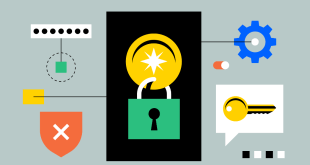In the rapidly evolving digital landscape, securing online communication has become paramount. The use of Secure Sockets Layer (SSL) certificates has been the go-to method for ensuring data privacy and authenticity. However, the emergence of blockchain technology has paved the way for a new era of trust and security on the internet. In this blog, we delve into the fascinating world of Decentralized Certificate Authorities (DCA) and explore how they hold the key to revolutionizing SSL certificate management, bolstering security, and restoring trust in the digital realm.
Understanding SSL Certificates and Their Role
Before we dive into the realm of Decentralized Certificate Authorities, let’s briefly understand SSL certificates and their significance in the online world. An SSL certificate is a digital certificate that encrypts data transmission between a user’s web browser and a website’s server, ensuring that sensitive information remains confidential and protected from potential eavesdropping. It not only safeguards data but also instills confidence in users by displaying the padlock icon in the address bar, signifying a secure connection.
The Imperative Need for Improved SSL Certificate Management
As the internet grew, traditional Certificate Authorities (CAs) became the central entities responsible for issuing SSL certificates. However, this centralized approach gave rise to several concerns, such as single points of failure, vulnerability to hacking, and issues of trust. The need for a more robust and reliable system led to the exploration of Decentralized Certificate Authorities.
Unveiling the Power of Decentralized Certificate Authorities
Introduction to Decentralized Certificate Authorities (DCAs)
Decentralized Certificate Authorities (DCAs) are built on the underlying blockchain technology, which ensures transparency, immutability, and decentralization. They function through a distributed network of nodes, eliminating the reliance on a single centralized entity for certificate issuance and management.
How DCAs Enhance Security and Trust
With DCAs, SSL certificates gain enhanced security, as private keys are no longer stored in a single location vulnerable to breaches. The blockchain’s tamper-proof nature ensures that certificates remain unaltered, reducing the risk of fraudulent activities and enhancing overall trust in the digital ecosystem.
Efficient Certificate Issuance and Validation
DCAs employ consensus algorithms to validate certificate issuance requests swiftly and accurately. This streamlined process results in faster issuance, minimizing the time between application and deployment, benefiting website owners and users alike.
Eliminating Single Points of Failure
In traditional CA models, a breach in a single entity can have far-reaching consequences. DCAs distribute trust across a network of nodes, making it exceedingly challenging for malicious actors to compromise the entire system.
Transparency and Accountability
The decentralized nature of DCAs ensures transparency in certificate issuance and management. Every action taken within the system is recorded on the blockchain, making it easy to track and verify certificate transactions.
Enhanced Privacy and Data Protection
DCAs enable users to have more control over their private data, as it is not concentrated in a central authority’s hands. This reduces the risk of data misuse and enhances privacy for individuals and organizations alike.
The Role of Blockchain in DCAs
Blockchain, the foundation of DCAs, provides the infrastructure for a secure and transparent certificate management system. It is a distributed ledger technology that records all certificate-related transactions across multiple nodes. This decentralized approach eliminates the need for a central authority, making certificate issuance and validation more efficient and secure.
Overcoming Challenges and Potential Roadblocks
While DCAs hold immense promise, their widespread adoption faces certain challenges. These include:
Scalability
As the number of certificates and transactions increases, blockchain scalability becomes crucial to maintain efficiency and speed.
Regulatory Compliance
Integrating DCAs into existing regulatory frameworks and industry standards requires careful consideration.
User Awareness and Acceptance
Users need to be educated about the benefits and workings of DCAs to gain their trust and widespread acceptance.
Interoperability with Existing Systems
Seamless integration with existing SSL certificate infrastructure is essential for a smooth transition to DCAs.
Commonly Asked Questions
Q1. What is the Difference Between Traditional CAs and DCAs?
Traditional CAs rely on centralized entities for certificate issuance, while DCAs operate through a decentralized network of nodes.
Q2. Can DCAs Be Used for EV SSL Certificates?
Yes, DCAs can issue Extended Validation (EV) SSL certificates, offering the highest level of authentication and trust indicators.
Q3.Do DCAs Eliminate the Need for SSL Certificates?
No, DCAs complement SSL certificates by providing a more secure and decentralized method of certificate issuance and management.
Q4. Are DCAs Immune to Cyber Attacks?
While DCAs offer enhanced security, no system is entirely immune to cyber attacks. However, the decentralized nature makes them more resilient.
Q5. How Can Website Owners Adopt DCAs?
Website owners can integrate DCAs through compatible SSL certificate providers and by following best practices for blockchain adoption.
Final Words
Decentralized Certificate Authorities present a groundbreaking solution to the challenges faced by traditional Certificate Authorities. By harnessing the power of blockchain, DCAs offer enhanced security, trust, and transparency, heralding a new era of secure digital communication. Embracing this technology can empower organizations and individuals to safeguard their data and build a more secure digital future.
 webfily
webfily



